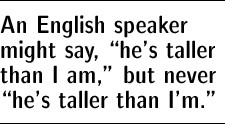Archive
New Evidence on Who Wrote the Bible, and When
The world’s most popular piece of writing may have been written earlier than many people think. And it may have been more widely read.
In 2004, I suggested that the Israelites promoted widespread literacy early in the first millennium BCE, in part or perhaps primarily to help spread Scripture. My analysis, which appears in my NYU Press publication In the Beginning: A Short History of the Hebrew Language, is based largely on theoretical considerations like the ancient Israelites’ contributions to writing.
In 2007, the excellent scholar Karel van der Toorn published a competing theory in his Scribal Culture and the Making of the Hebrew Bible. He represents the more mainsteam view that literacy was limited to a very small scribal class. In my review of his work for the Jerusalem Post (apparently no longer available on line), I noted that:
Vexingly, then, we are left with two largely incompatible conclusions [van der Toorn’s and mine], each internally consistent and coherent, but unlikely both to be entirely correct. Puzzles such as these create exciting times for scholarship…
In an article just published in PNAS (Proceedings of the National Academy of Sciences of the United States of America) — available on line here for a fee and summarized here by the New York Times — an interdisciplinary team that includes mathematicians, archaeologists, and historians concludes that literacy was widespread in the Kingdom of Judah as early as 600BCE.
Their evidence comes from 16 inscriptions from Arad, an ancient military outpost south of Jerusalem. The style of the letters in the inscriptions points to at least six different ancient literate writers. The content of the inscriptions suggests that even low-ranking officials wrote things for themselves.
In fact, the authors identify five rungs of hierarchy represented by the inscriptions, starting with the king of Judah and running through a high-ranking commander, a local commander in Arad, and a quartermaster in Arad named Eliashib down to Eliashib’s subordinate. Even that subordinate, apparently, was literate.
The authors conclude that literacy in Judah was widespread far earlier than scholars like van der Toorn have thought.
Combined with my largely theoretical evidence in In the Beginning, we now have even more reason to believe that parts of the written text of the Bible date to the early first millennium BCE.
Additionally, it seems that widespread literacy was an integral part of the ancient Judaean agenda, alongside other more widely noted goals such as monotheism.
Chasing Mediocrity
I think that mediocrity is easy to measure while excellence is not, which creates a dilemma in the current era of objective assessment: when we insist on objective metrics of success — grades (for children), evaluations (for teachers), quarterly profits (for companies), recognized rules of writing (for authors), etc. — we motivate people to chase mediocrity.
For example, high schools in this country have been on a steady path toward more objective standards (starting with “No Child Left Behind”), while university professors, once they achieve tenure, are essentially accountable to no one. As a result, I believe, U.S. high schools fare terribly compared to the rest of the world, while our universities are arguably second to none.
Indeed, Forbes reports that “70% of engineers with PhD’s who graduate from U.S. universities are foreign-born.” These engineers come to the U.S. only for the education system that has no objective metrics of success, and, similarly, U.S. high-school students are unprepared for graduate work after their educational path based on test scores.
In the completely different realm of fiction, best-selling author Lee Child critisizes the writing industry for focusing on objective criteria of good writing, starting with the most well-known rule: “show don’t tell.” Writers follow the rule, Child says, because they’ve been “beaten down.” They are chasing mediocrity.
The now-defunct Bell Labs had a well funded department of researchers whose only job was to tinker; they were not required to demonstrate that they were earning their salaries. The department developed the transistor, the solar cell, the laser, and the first communications satellite, among many other innovations. Freed of objective metrics of success, the researchers were able to thrive.
The highly coveted MacArthur “genius” grants, officially the “MacArthur Fellowship” stipends, come with no strings attached and make no reporting obligations on the fellows, because, the foundation believes, the fellows “are in the best position to decide how to allocate their time and resources.” They don’t want to push their fellows toward mediocrity.
The catch is that I think there’s a place for mediocrity, because sometimes the alternative is ineptitude. Or to look at it differently, “mediocrity” is sometimes “competence.”
I’d rather have a mediocre airplane pilot than an inept one, for instance, so I’m glad the FAA requires (14 CFR 121) pilots to undergo “check rides” to demonstrate their continuing competence.
So we seem to have two approaches: an objective-assessment model that pushes people from ineptitude up to competence, but also pushes people down from excellence to mediocrity; and a more flexible model that allows people to excel but also to fail.
The trick, I suspect, is knowing when to apply each one.
Publication of “The Warwick Files: Revenge”
In “Revenge,” a woman breaks off an affair with the governor, pitting Police Chief Kai Goodman against the State Police.
Like the first story, “Revenge” features Coyote “Kai” Goodman, whose past is so secret that even his cover story is classified. The setting is Warwick, NY, where, according to the official count, there are no spies.
The story is available in paperback for $3.95, and, like most short stories, for only $0.99 on Kindle. Or start reading the story for no-charge on-line.
To celebrate this release, the Kindle edition of “Checkpoint” — the first story in the series — is a free download, but only today.
I hope you enjoy reading “Revenge” it as much as I enjoyed writing it.
To Blindly Lead The Blind: Why Only Some Grammar Rules Are Breakable
[You can also read this on the Huffington Post.]
A misguided debate is raging over English grammar. It began when authors Patricia O’Conner and Steward Kellerman claimed in the Smithsonian that “most of what you know about grammar is wrong.” Then the Huffington Post picked it up, and after that The Guardian.
The controversy is illustrated by a disagreement over “split infinitives”: is it, or is it not, okay to say “to boldly go…,” using the word “boldly” to split the infinitive “to go”?
Having written a column on (Hebrew) grammar for the International Jerusalem Post and with a PhD in linguistics to my name, I feel like I have a horse in this race. And as someone who likes talking to my friends, I have another horse in the race. As an author and lover of words, I have a third horse with my name on it.
 And this is my point: There are three distinct ways to look at grammar.
And this is my point: There are three distinct ways to look at grammar.
Who Died And Made You King?
The first, and most traditional way, is what we linguists call “prescriptive grammar,” or, more snarkily, the “who died and made you king” approach. And it’s essentially a social policy, not unlike wearing white only after Labor Day. (Or before. Or Memorial Day. You know what I mean.) People in power make up rules and expect other people to follow them: Don’t end a sentence with a preposition. Don’t split an infinitive. And so on.
But Ms. O’Conner and Mr. Kellerman are misleading when they say that these are “phony rules.” They’re just like spelling: arbitrary agreements enforced by arbitrary language monarchs. There’s no good reason that the possessive “Michael’s” should have an apostrophe when the equally possessive “its” does not, for instance, but that’s the way it goes. The kings told us so. And the same is true of properly positioning prepositions and not inserting items into infinitives.
(Incidentally, the “with” in “put up with” is a particle, not a preposition, in spite of Churchill’s probably apocryphal stance that “ending a sentence with a preposition is something up with which I shall not put.” And Ms. O’Conner and Mr. Kellerman are simply wrong when they say that “to” isn’t part of the infinitive in English.)
But Everyone’s Doing It!
The second way to look is grammar is both more interesting and less appreciated. People naturally follow innate rules when they speak. Unlike the “who died and made you king” sort, which, as we’ve seen, are a social policy, these innate rules are akin to anthropology. People follow these rules without even knowing that they’re doing so. Technically part of “descriptive linguistics,” we might dub these rules “but everyone’s doing it.”
 For example, in English, “I am” and “I’m” mean the same thing: “I am going to the movies” is the same as “I’m going to the movies.” But even so, an English speaker might say, “he’s taller than I am,” but never “he’s taller than I’m.” Hundreds of millions of Americans, Brits, and more all agree on this basic fact, in spite of mostly never having thought about it before. That’s the magic of the “but everyone’s doing it” camp: it sheds light on human behavior.
For example, in English, “I am” and “I’m” mean the same thing: “I am going to the movies” is the same as “I’m going to the movies.” But even so, an English speaker might say, “he’s taller than I am,” but never “he’s taller than I’m.” Hundreds of millions of Americans, Brits, and more all agree on this basic fact, in spite of mostly never having thought about it before. That’s the magic of the “but everyone’s doing it” camp: it sheds light on human behavior.
Similarly, we’re told to say, “it is I,” not “it’s me.” But descriptively that’s nonsense. If four people who knock on a door in America are asked “who is it?” they don’t answer “it’s only we.”
As a final example, English speakers innately know that profanity can be used to split a word right in the middle, but only in the correct place. This is why Laura San Giacomo’s foul-mouthed character in “Pretty Woman” can respond to a question about a name with “CindeFuckingRella,” and why a frustrated traveler might lament getting stuck in “MissisGodDamnSippi.” We know that this curious pattern is governed by rules because only some internal word slots allow expletives: speakers don’t say “CinFuckingDerella” or “MississipGodDamnPi.”
So when Ms. O’Conner and Mr. Kellerman write that a rule is “phony,” what they mean is that it is not descriptive. And they’re right that many a non-descriptive rule was promulgated in honor of the regent we call Latin. But even artificial rules are rules, and, like spelling, they have their place.
The Art of Writing
If the first kind of grammar (“who died and made you king”) is a social policy, and the second (“but everyone’s doing it”) is observational science, the third is art: what’s the best way to put words together to achieve a certain goal?
If you want clarity, then, for example, “writing carefully, dangling participles must be avoided,” to quote William Safire’s 1979 column in The New York Times. (The dangling particles aren’t writing carefully. The writer is.) An even clearer example is replacing the awkward “sleeping soundly, the lion ate the campers” with the better “the lion ate the sleeping campers.” The reason to avoid dangling particles, in other words, is that they’re not clear.
Passives, too, generally don’t make for good prose. So instead of “the campers were eaten by the lion,” a good author will generally prefer “the lion ate the campers.”
And I’m reminded of a sign I saw in the restroom in Target: “All employees must wash your hands.”
But these rules, some of which are prescriptive, are only aesthetic guidelines. Really good authors know when to break them. This is why the second sentence of Lee Child’s run-away best seller The Killing Floor can be the three-word fragment, “At twelve o’clock.” And the second sentence of John Grisham’s The Firm can be the ungrammatical, “He had the brains, the ambition, the good looks.” (This is technically called “asyndeton.” Mr. Grisham’s second sentence is asyndetic.) A high-school student would lose points on an essay for writing either of these sentences, but Mr. Child and Mr. Grisham use them to create best sellers.
Deviate too far from the “who died and made you king” rules, and your writing will look ignorant and amateurish. Deviate from the descriptive rules and you’re no longer writing English. But deviate from the aesthetic rules, and you end up either with a mess or with a masterpiece.
Art is like that.




